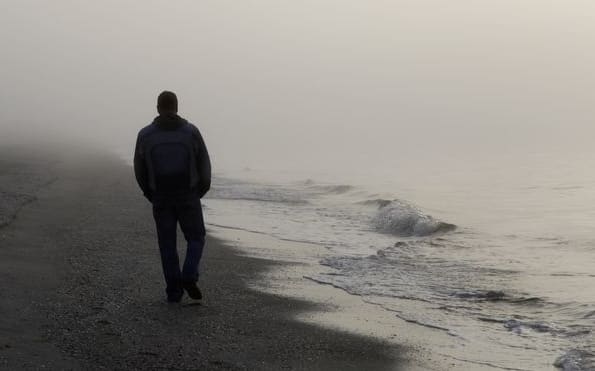Mental health advocates in Christchurch say more distressed and suicidal people are coming to them for help because they can't get into specialist hospital services.

Photo: 123RF
The Canterbury District Health said it has been struggling to recruit staff, and with growing demand on its acute services, the threshold for who can access them has risen.
One Christchurch mental health agency said angry, frustrated people at the end of their tether had become a common sight at their facilities.
Mental Health Advocacy and Peer Support offered community-based care but was now seeing more people who felt suicidal or had acute mental health needs.
Its general manager, Sue Ricketts, said people were in crisis and often didn't know where to go.
"The pressure builds up within them until they are just at breaking point, and that's often the point at which we see people."
Ms Ricketts said while her service could handle such inquiries and was generally able to diffuse tense situations, it had effectively become a provider for those with high needs.
She said people in the community who were distressed or who had high levels of depression, anxiety or bi-polar disorder were often seen in the community now because the pressure on clinical services was so great.
Canterbury District Health Board (CDHB) said pressure on clinical services meant its staff couldn't help everyone.
A spokesperson, Toni Gutschlag, said as the pressure came on clinical services, the threshold for being able to access those services had gone up.
"We're just not able to respond to all of the needs that exist and that's undoubtedly impacting on community providers," she said.
The board had also struggled to recruit new staff. It said while 25 new nurses would start next month, there were still 35 vacancies.
Ms Gutschlag said although it had been a difficult period existing staff had been extraordinary, working extra hours and doing overtime to keep services going.
Demand for services keeps growing
The Ministry of Health said demand for mental health services had increased and, in the year ending June 2016, a record number of people (167,840, or 3.6 percent of the New Zealand population) accessed specialist mental health and addiction services.
It said this increase was consistent with international trends.
The ministry said full-time registered nurses working in mental health had increased by 16 percent since 2011 - from 3268 in 2011 to 3893 in 2017.
And it said the number of mental health nurses in the Canterbury DHB area had increased, from 505 in 2011 to 571 in 2017.
This year's budget contained $224m for mental health services over four years. Of that, the government earmarked $100m to go on 17 new initiatives, many focused on young people.
But Ms Gutschlag said the demand for services kept growing.
"I think that's a significant challenge for us as a mental health sector - how do we manage that in a constrained funding environment."
Another community provider, Emerge Aotearoa, said it and many in the non-government mental health sector were funded by district health boards so the boards' own funding pressures flowed on to them.
Its chief executive, Barbara Disley, said the industry was also dealing with the impact of the recent pay equity settlement that increased wages for aged and residential care workers but not for those in mental health support.
"We're finding increasing pressure both recruiting staff and retaining staff and this is starting to really bite into the ability of the mental health system to cope."
Sue Ricketts from Mental Health Advocacy and Peer Support said her organisation would seek government funding for a crisis centre, which would assess people early on and then refer them either to acute clinical services or to community services.
If successful she believed the scheme could be extended around the country.






